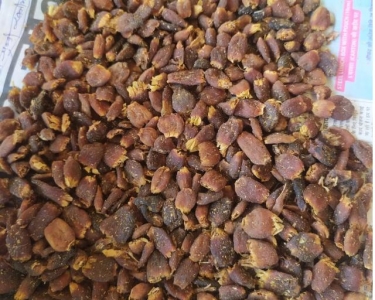Live animals
Couldn't find the product you want?
Fill out this form to request the product.
Products You May Like
Export from Kiribati
Kiribati (officially called the Republic of Kiribati) is a small island in the central part of the Pacific Ocean with population of 100.000 people.
The island started to create its own economy and international trade system in 1979, after the territory became independent from The United Kingdom. Despite the fact, that the Kiribati is one of the youngest countries in he word, it is a member of the Commonwealth of Nations, the IMF and the World Bank. Not long ago, the island became a full member of the United Nations.
Kiribati’s economy is constrained by geographical remoteness and fragmentation, a harsh environment with infertile soils, limited natural resources, and the need to create jobs for an expanding population. Due to the fact, that the soil on the island is not as fertile, as it should be, the governance invests a lot of funds in Fishery and Sea industries. The biggest part of Kiribati exports consists of non-fillet frozen fish, fish fillets, live fish, crustaceans and aquatic invertebrates.
In addition to fishing, Kiribati is focused on Copra and Coconuts industry, as coconut plantations occupy the biggest part of the island’s territory. Copra is exported in bulk in many countries of the world.
Due to its geographical position, the country is rich in potable water. The biggest water importers and constant trade partners of the country are Thailand and Japan.
The country establishes good sea trade connections with neighbor countries. In such a way, the local manufacturers produce and export fishing ships as well as canoe.
The main export partners of Kiribati are Vietnam, South Korea, Ecuador, Fiji, China, Australia.
Import to Kiribati
Kiribati is considered to be a very young developing country. In one form or another, the country gets a large portion of its income from abroad. Examples include fishing licenses, development assistance, worker remittances, and tourism.
Kiribati has a very limited domestic production ability. That is why, it must import nearly all of its essential foodstuffs and manufactured items.
The country focuses on creating strong logistic system on its territory. The deficit of roads influences badly local economy as well as its position on international market. In such a way, the country is obliged to import construction materials as well as machinery and mechanical appliances.
Despite the fact, that the country is very small, it has two domestic airlines: Air Kiribati and Coral Sun Airways. Kiribati does not have any resources to produce any airplanes. That is why, the government imports airplanes as well as aerospace and defense supplies.
The major imports are FMCG products, refined petroleum, raw sugar, netting, passenger ships.
The top import origins are Fiji, South Korea, China, Australia and Japan.
Check Out Export Portal: A Site That Lets You Export Live Animals
If you are looking to buy and export animals, then you came to the right place! Export Portal's Live Animals Department is an online marketplace for sellers and buyers of any livestock. We work to contribute to the live export industry, which brings many economic advantages and other benefits to countries that rely heavily on livestock imports. In fact, in just Australia alone, this industry contributes roughly $1.8 billion to the country's GDP each year. Moreover, it also ensures food security while helping people meet their protein needs as well.
Finding the Right Animal
We feature a wide range of pigs, cows, sheep, goats, horses, rabbits and hares, turkeys, bees, and fish for sale. An increasing number of American, Australian, German, South African, Argentinian, and Italian farmers and companies are advertising their livestock with Export Portal, portraying just how effective and helpful our site is.
To help customers make more informed purchasing decisions, our site lets users narrow down their searches by the age, breed, and sex of the animal. If you are feeling hesitant to shop on our site and want more detailed information, make sure to check out our seller ratings and reviews, which are written by our buyers and customers. We also collaborate with hundreds of trusted international shipping companies that arrange the transport of all kinds of animals and birds to any country in the world.
Online Shopping is More Simple with Export Portal
Export Portal is an ideal site for everyone who is an avid online shopper. Our convenient options make it easy to find and buy whatever you are looking for. Our seller network from all over the world has everything you need, and our customer support team will make sure you can find it. Our wide assortment of products will be sure to provide you with the best shopping experience. Make sure to check out our site and items today!
Customs requirements of Kiribati
Kiribati Customs Contacts
Ministry of Finance & Economic Development
Website: http://www.mfed.gov.ki/
Address: P.O.Box 67 Bairiki, Tarawa, Kiribati
Phone: +686 21806
Fax: +686 21307
Kiribati is an island country situated in the central Pacific Ocean. The country is a member of the Commonwealth of Nations, the IMF and the World Bank, the African, Caribbean, and Pacific Group of States and other international organizations. Kiribati maintains relations with its Pacific neighbours, Australia, New Zealand, Taiwan, Japan and Fiji.
Tariffs
Customs tariffs are imposed as a service of revenue and can reach up to 75%. Most duties are levied ad valorem, with specific duties on alcoholic beverages, tobacco, certain chemicals, petroleum, and some other goods.
Since a single-line tariff was introduced, trade preferences are no longer granted to imports from Commonwealth countries.
All imported goods are subject to an additional freight levy charge.
Product certification, labeling and packaging
Products imported into Kiribati require import permits and licenses as well as health and phytosanitary certificates, as the country operates a strict quarantine regime for the import of food, plants and animal (including fish) products.
Documents for import
- Bill of lading
- Commercial invoice
- Customs import declaration
- Import license
- Packing list
Documents for export
- Bill of lading
- Commercial invoice
- Customs Export Declaration
- Packing list
Detailed information on customs tariffs for every product category:
http://www.forumsec.org/resources/uploads/attachments/documents/Kiribati_Tariff.pdf
Sources:
http://www.mfed.gov.ki/sites/default/files/Exemptions%20and%20Zero-rated.pdf
http://www.doingbusiness.org/data/exploreeconomies/kiribati/trading-across-borders/
http://www.forumsec.org/resources/uploads/attachments/documents/Kiribati_Tariff.pdf





